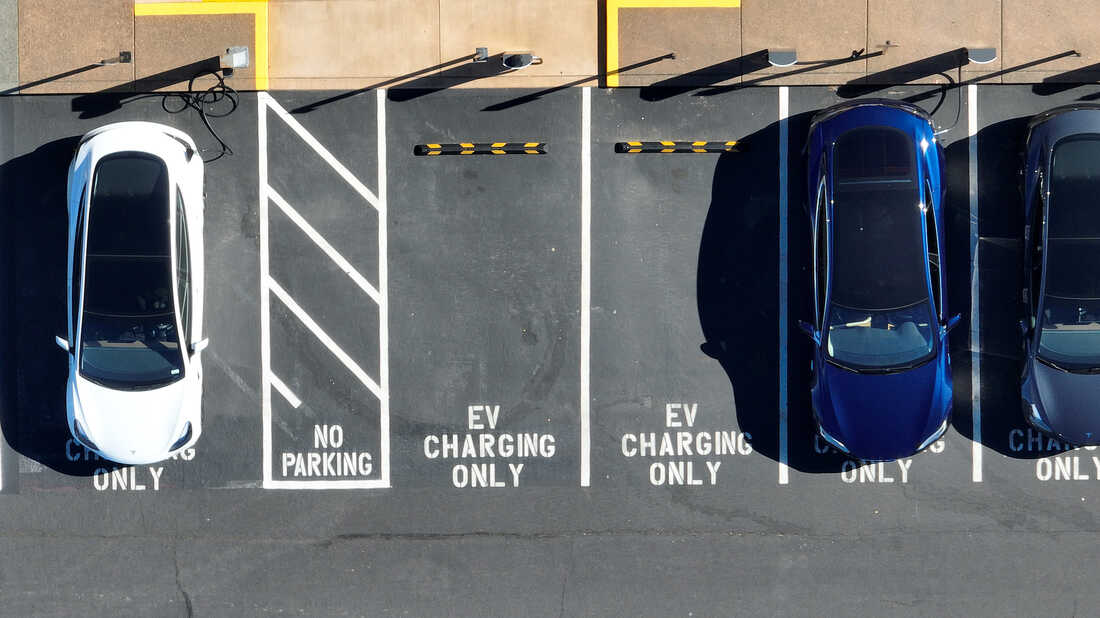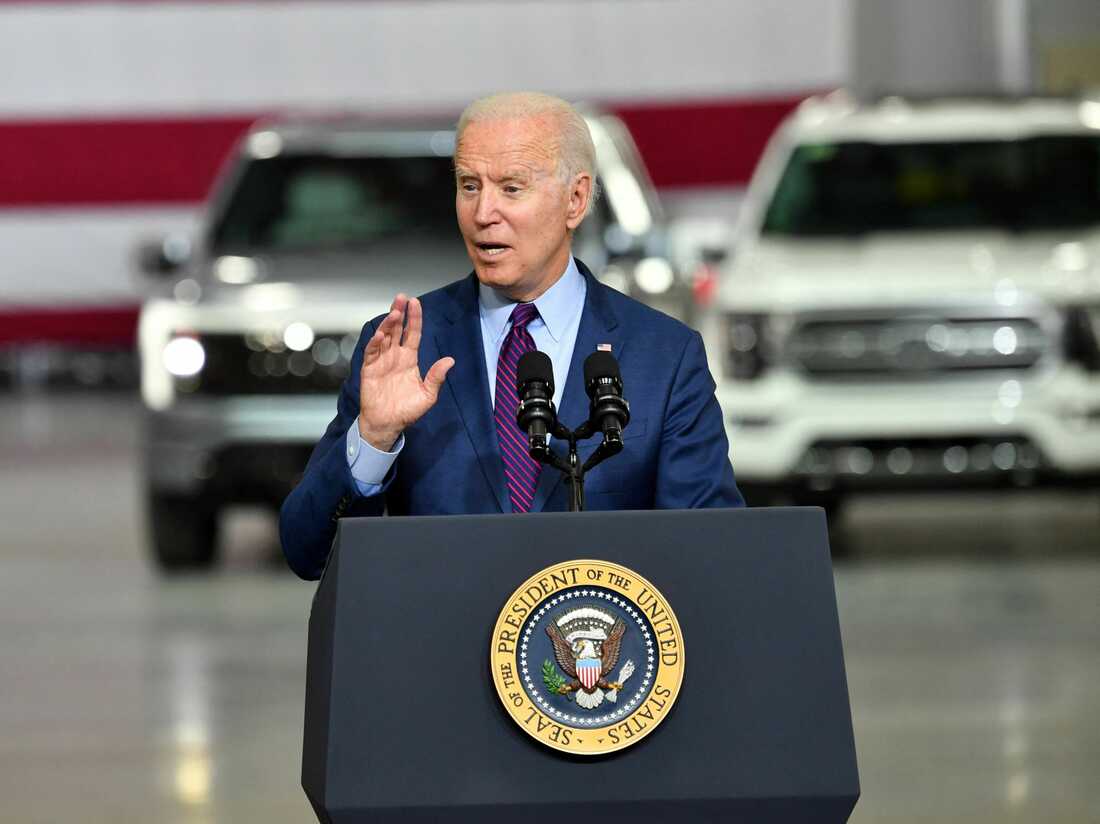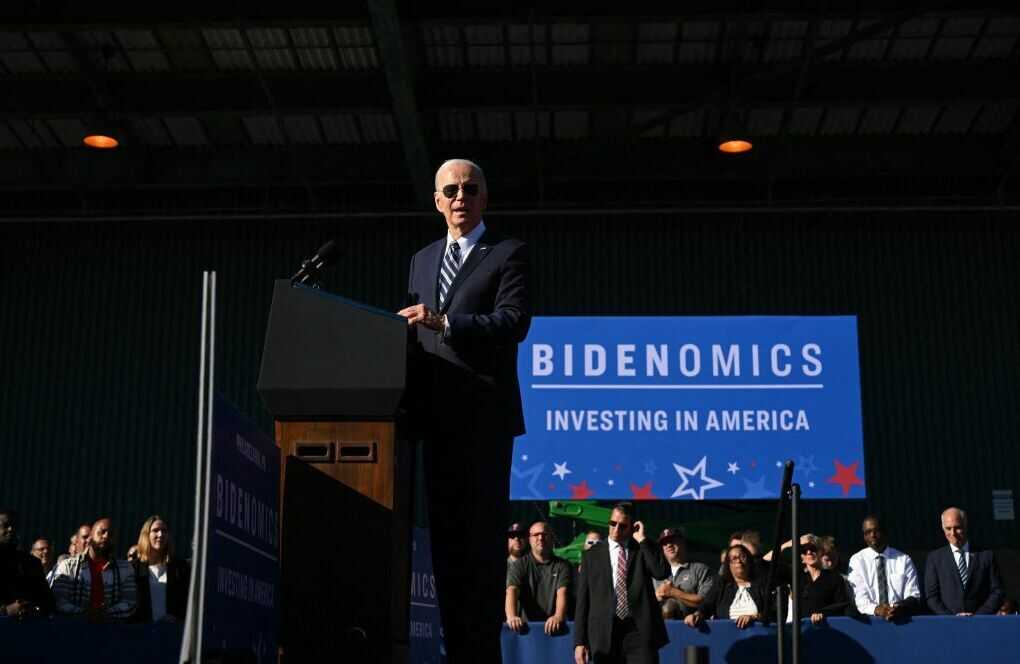How fast can the auto industry go electric? Debate rages as the U.S. sets new rules
By Camila Domonoske
Tesla vehicles recharge in February in Corte Madera, Calif. The government wants to accelerate the transition to electric vehicle, but how fast the country can actually move is being hotly debated. Justin Sullivan/Getty Images hide caption
toggle caption Justin Sullivan/Getty ImagesTesla vehicles recharge in February in Corte Madera, Calif. The government wants to accelerate the transition to electric vehicle, but how fast the country can actually move is being hotly debated.
Justin Sullivan/Getty ImagesFor car policy wonks, the Environmental Protection Agency's proposed new vehicle standards are this summer's hot blockbuster.
The surprisingly ambitious proposal could mean that up to 67% of new vehicles sold by 2032 would need to be electric in order for carmakers to be in compliance. That would be a major step toward cutting U.S. greenhouse gas emissions.
Public comments on the EPA proposal closed on Wednesday, and the reviews have poured in.
"Vital," says . "Feasible," says the electric vehicle lobby. "Neither reasonable nor achievable," say traditional automakers.
It's not just the auto industry weighing in. The ski industry — which is feeling the effects of climate change — has . The oil industry has , with the American Petroleum Institute warning it "will keep all options on the table" if it's finalized.
Unlike California and other states that require a certain percentage of new car sales be electric, the EPA would not set a direct mandate for electric vehicles.
However, the proposed standards for greenhouse gas emissions and pollution would be so low that to meet them across an entire fleet, automakers would almost certainly have to build large numbers of zero-emission vehicles. The EPA says that would save lives and save Americans a up to a trillion dollars on gasoline.
Vehicle standards are a complicated dance between regulators and industry. The government wants to set standards that are achievable, but not easy. Companies want standards that give them plenty of room to make profits.
Big automakers say the timeline is too fast
The Alliance for Automotive Innovation, the trade group representing big, traditional automakers, is lobbying for less stringent standards, pointing out that many elements of the transition to EVs — from beefing up the electric grid for chargers to having more raw materials for batteries — are outside of the direct control of carmakers.

President Biden delivers remarks at the Ford Rouge Electric Vehicle Center, in Dearborn, Michigan on May 18, 2021. The Biden administration has been pushing for a faster transition to electric vehicle, including by investing billions to help build a nationwide network of public chargers. Nicholas Kamm/AFP via Getty Images hide caption
toggle caption Nicholas Kamm/AFP via Getty ImagesPresident Biden delivers remarks at the Ford Rouge Electric Vehicle Center, in Dearborn, Michigan on May 18, 2021. The Biden administration has been pushing for a faster transition to electric vehicle, including by investing billions to help build a nationwide network of public chargers.
Nicholas Kamm/AFP via Getty ImagesThe group is asking the EPA to aim for a lower percentage of car sales to be EVs by 2032, and to extend some "flexibilities" in how emissions and emissions credits are calculated; essentially, both lowering the target and giving companies more ways to hit it.
That is, if automakers are going to be required to make EVs quickly, other companies can more confidently build factories for parts or invest in chargers, investments that might only pay off when a high percentage of cars are electric.
"We believe these standards are achievable," ZETA president Albert Gore III wrote.
The group compared the switch to EVs to the phasing out of leaded gasoline, encouraging the EPA to act with comparable urgency.



